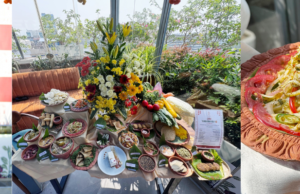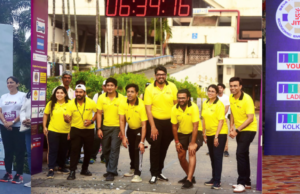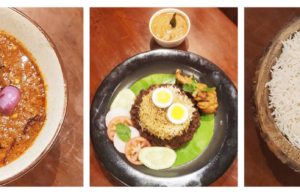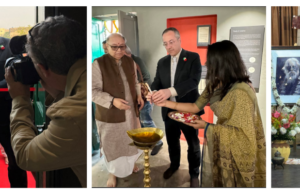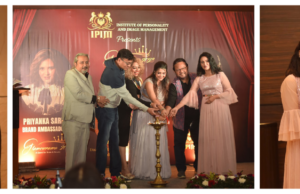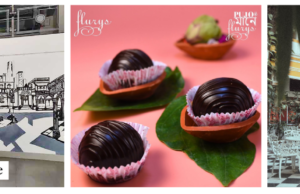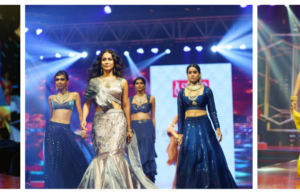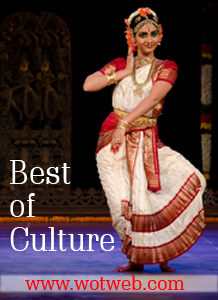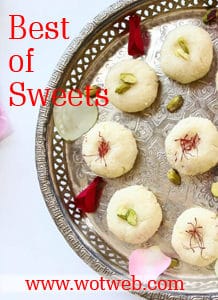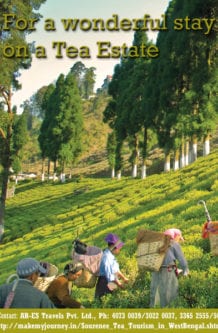
WoT's Hot
We Bongs have this high-nosed belief that there are two variants of Indians—the Bangali and the rest of them—the awbangali or non-Bongs. Whether it is a matter of culture, condiment or culpable crustiness, it exists as a concept. This superiority complex thus gives us supposedly the extra edge in the way we look at cuisine, a refined culinary journey where we go course by course from bitter to tempered to fries, mashes, crisps at various stages, tangy towards the end, until our sweet tooth entreats for the final doi-misti. One course never intrudes on the next.
So, imagine jumping into a novel way of partaking Bengali food—pairing it with the right kind of wines to enhance the experience of the variegated flavors from starters to enders. It’s not the usual Bengali fare, though. Because, when we looked for innovation and originality, we found just the right person to create an upbeat four course meal in Chef Sharad Dewan, Regional Director, Food Production of The Park Hotels, Kolkata. A little hatke the spread promises to be for sure! And when we looked for the wines to pair the special dishes, we went no further than a set of Jacob’s Creek offerings. Sharad Dewan has been leading the culinary initiative for over many years now at the Park, and who also helms the creative kitchens of Apeejay Surrendra Park Hotels, is called the Alchemist of Food. During the pandemic, his optimistic mantra was to “rethink, reimagine, reinvent.” So here we have a set of reconstructed recipes.
Bitter beginning is what is de rigueur for a Bengali meal. So karela has been his choice. Not the usual crispy fried roundels or the slices combined with potatoes. Sharad Dewan’s take is exotic:
“It is karela stuffed with the prize catch of the season—ilish. So, this is what I have done. I marinated the ilish, then roasted it, adding a sweet element to it with anjeer (fig) the sweetness of the fig complementing the bitter karela. I marinated the karela separately and lightly steamed it. Post the stuffing, the “frying” had to be delicately executed. So I used the tel of the ilish in an iron kadhai, dimmed the flame and slow roasted the ilish-infused karelas.”
And a vegetarian substitute? The banana flower, done in like manner, sans the ilish oil, to give us a mocha stuffed karela.”
What wine could go with this? “A Jacob’s Creek Sparkling Chardonnay Pinot Noir NV with its refreshing lemon citrus aromas. A wine which finishes soft, crisp, clean would be the perfect pairing for the bitter gourd.” says Dewan.
We continue the fish narrative. Chef Dewan opts for Parshey. “It will be a typical dish made with shorshey, the mustard paste bringing out the flavours of this one-boned fish. But my twist will come in the accompaniment, a Gobindobhog risotto, for which I will use a light white wine to cook it. The vegetarian equivalent will be a shorshey patal.”
And the pairing?“A Jacob’s Creek Chardonnay with citrus and melon notes. It will never impose itself on the mustard fish, but highlight its taste.”
 For our next number, Chef Sharad Dewan opts for a mutton haleem with its vegetarian equivalent being a jackfruit or echorer haleem, which will be served with barista and hara masala focaccia crisps. “Its got to be a red, red wine time! I would go for a Jacob’s Creek Shiraz Cabernet which will be swilled in an elegant red wine glass. This wine is actually crimson red with pink and purple hues. And the taste is of rich ripe red berry fruits, with a touch blueberry and a rounded finish with the notes of vanilla. An ideal enhancement for a hearty haleem!”
We now discuss how we come to the end of the four-course spread. It can’t be the usual. So the sweet yoghurt is a Bhapa doi topped with wine-cooked berries. The deviation on the wine front will be a sparkling number −A Jacob’s Creek Sparkling Chardonnay Pinot Noir NV to give it the cheery celebratory bubbly note for the endgame.
For our next number, Chef Sharad Dewan opts for a mutton haleem with its vegetarian equivalent being a jackfruit or echorer haleem, which will be served with barista and hara masala focaccia crisps. “Its got to be a red, red wine time! I would go for a Jacob’s Creek Shiraz Cabernet which will be swilled in an elegant red wine glass. This wine is actually crimson red with pink and purple hues. And the taste is of rich ripe red berry fruits, with a touch blueberry and a rounded finish with the notes of vanilla. An ideal enhancement for a hearty haleem!”
We now discuss how we come to the end of the four-course spread. It can’t be the usual. So the sweet yoghurt is a Bhapa doi topped with wine-cooked berries. The deviation on the wine front will be a sparkling number −A Jacob’s Creek Sparkling Chardonnay Pinot Noir NV to give it the cheery celebratory bubbly note for the endgame.
 For our next number, Chef Sharad Dewan opts for a mutton haleem with its vegetarian equivalent being a jackfruit or echorer haleem, which will be served with barista and hara masala focaccia crisps. “Its got to be a red, red wine time! I would go for a Jacob’s Creek Shiraz Cabernet which will be swilled in an elegant red wine glass. This wine is actually crimson red with pink and purple hues. And the taste is of rich ripe red berry fruits, with a touch blueberry and a rounded finish with the notes of vanilla. An ideal enhancement for a hearty haleem!”
We now discuss how we come to the end of the four-course spread. It can’t be the usual. So the sweet yoghurt is a Bhapa doi topped with wine-cooked berries. The deviation on the wine front will be a sparkling number −A Jacob’s Creek Sparkling Chardonnay Pinot Noir NV to give it the cheery celebratory bubbly note for the endgame.
For our next number, Chef Sharad Dewan opts for a mutton haleem with its vegetarian equivalent being a jackfruit or echorer haleem, which will be served with barista and hara masala focaccia crisps. “Its got to be a red, red wine time! I would go for a Jacob’s Creek Shiraz Cabernet which will be swilled in an elegant red wine glass. This wine is actually crimson red with pink and purple hues. And the taste is of rich ripe red berry fruits, with a touch blueberry and a rounded finish with the notes of vanilla. An ideal enhancement for a hearty haleem!”
We now discuss how we come to the end of the four-course spread. It can’t be the usual. So the sweet yoghurt is a Bhapa doi topped with wine-cooked berries. The deviation on the wine front will be a sparkling number −A Jacob’s Creek Sparkling Chardonnay Pinot Noir NV to give it the cheery celebratory bubbly note for the endgame.We Bongs have this high-nosed belief that there are two variants of Indians—the Bangali and the rest of them—the awbangali or non-Bongs. Whether it is a matter of culture, condiment or culpable crustiness, it exists as a concept. This superiority complex thus gives us supposedly the extra edge in the way we look at cuisine, a refined culinary j
Other Articles in HUNGRY THIRSTY WOT
What to read next
Featured articles

Welcome Festive Season in Glam, Latin Quarters Launches new #PujoBling Collection with Monami Ghosh
by WOT




